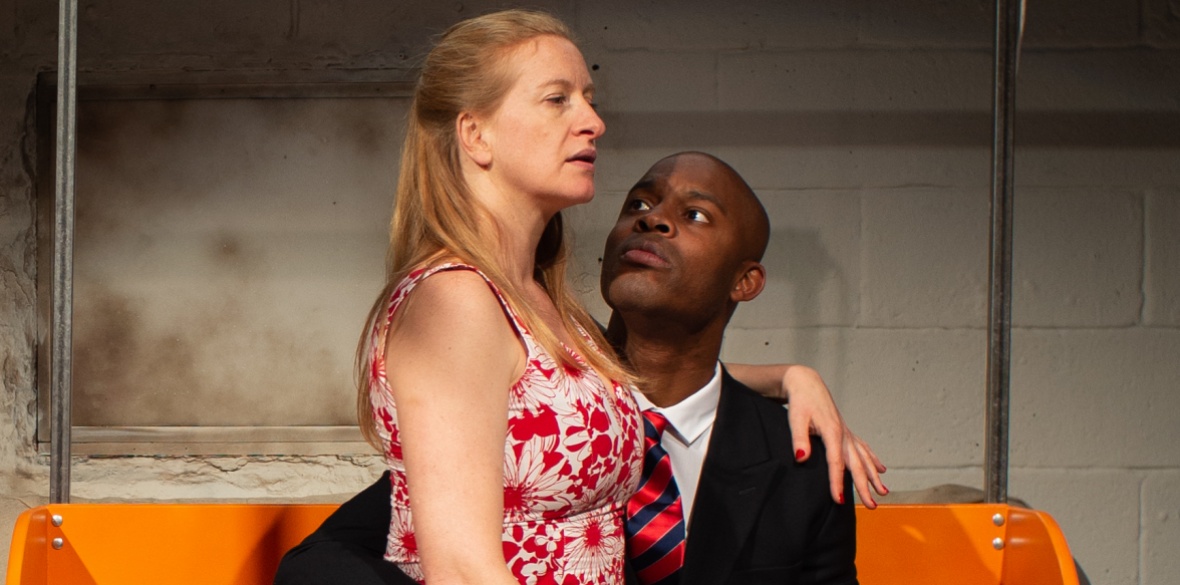This is the last article you can read this month
You can read more article this month
You can read more articles this month
Sorry your limit is up for this month
Reset on:
Please help support the Morning Star by subscribing here
AS PART of Black History Month, Kaitlin Argeaux has resurrected Amiri Baraka’s 1964 political allegory Dutchman in the appropriately intimate confines of Tristan Bates Theatre.
Set in a New York subway car, the 50-minute play revolves around the encounter between an enigmatic white woman, the thirty-something Lula, and Clay, a smart-suited black man in his twenties.
The capricious Lula (Cheska Hill-Wood) is soon revealed as a metaphoric representation of privileged white America. Her switches between lubricious hedonism and bored disdain for her fellow passenger are a broad swing at racist attitudes from Baraka.
Those allegorical elements, evident in the play’s title referencing the Dutch slave ships, are reinforced by Lula offering a symbolic apple to the compliant Clay before wastefully casting aside her own half-eaten fruit.
Her flirtation, lies and accurate wild surmises about Clay’s background and aspirations turn to openly racist taunts as the acceptance of the black man into her world is seen for what it really is — control and degradation.
Clay, suggestive of Muhammad Ali’s former name, is initially played with dignified self-restraint by James Barnes. Yet he soon falls for Lula’s advances and mystifyingly accurate, stereotypical generalisations.
Only when finally humiliated in front of other compliant commuters does he finally explode with a caustic tirade against white attitudes to blacks, claiming popular black identity and culture to be a disguise for the inherent rage.
The abrupt violent end and renewal of the cycle, with Lula lining up her next victim, were seen as provocative and contentious in the original production more than five decades ago.
Inspired by Malcolm X and the black separatist movement, the play was the last written by Leroi Jones before he discarded his white name. Its uncompromising assault on black integration in purely elitist white terms is still powerful.
But it lacks subtlety. While Baraka’s language burns with poetry and anger, drama has moved on — even if the legacy of the slave trade is still a barbed fence between whites and blacks in the US.
Runs until October 26, box office: actorscentre.co.uk












